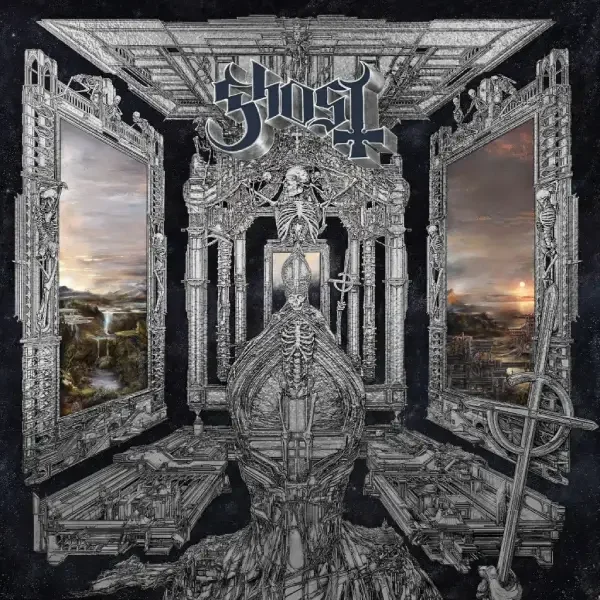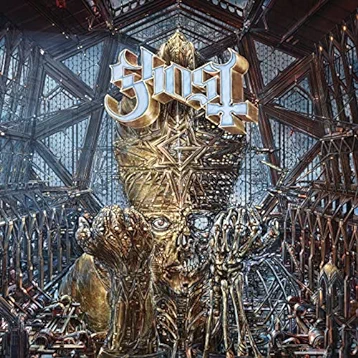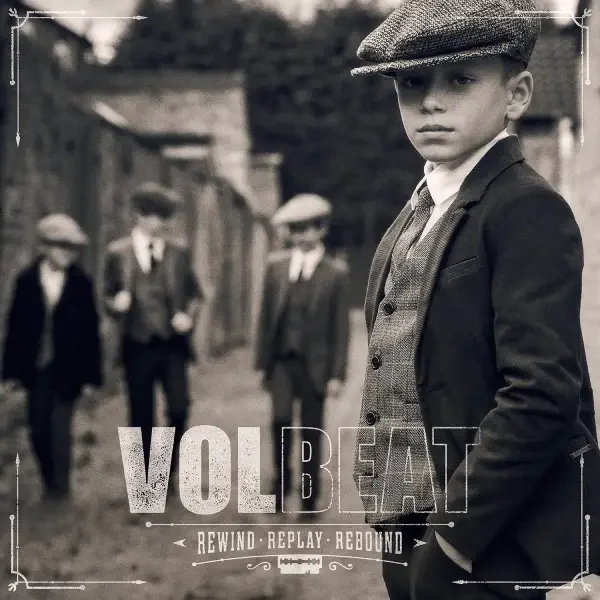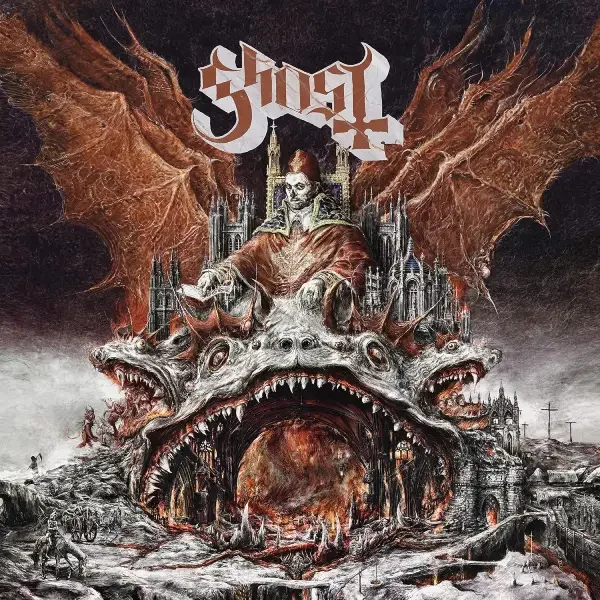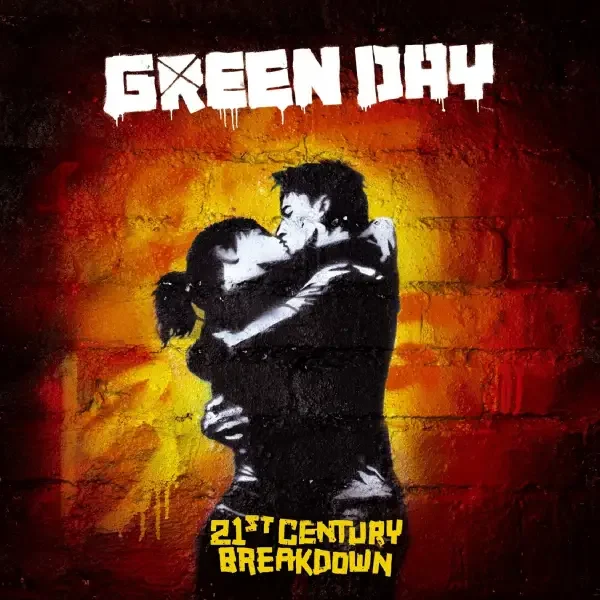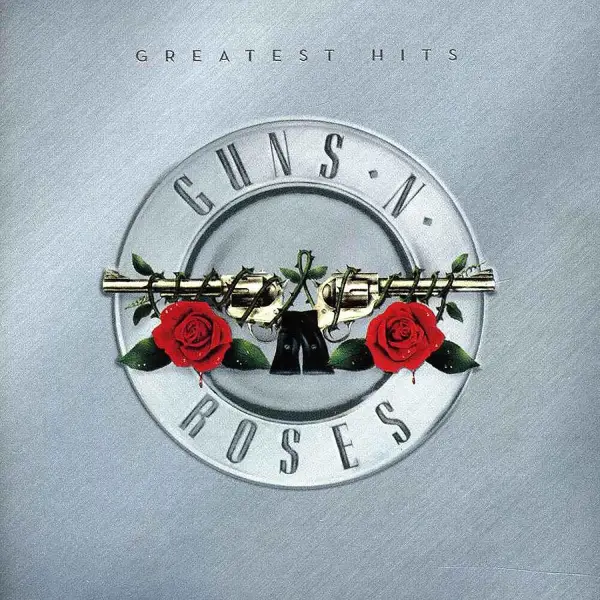Ghost – Skeletá
Ghost’s Skeletá dives deep into darkness with raw emotion, heavy riffs, and gothic flair. Tobias Forge leads with menace and charm, blending vulnerability and power into a haunting, theatrical journey that’s both intimate and electrifying.
 Arena rock, also known as stadium rock, emerged in the 1970s as a grand, bombastic evolution of rock music designed for massive audiences. Characterized by anthemic choruses, soaring guitar solos, and elaborate stage productions, arena rock became the defining sound of rock’s most commercially dominant era. Bands like Led Zeppelin, Queen, and The Who helped pioneer the larger-than-life spectacle, while acts such as Boston, Journey, and Foreigner perfected its formula. The music was built for maximum impact, with catchy hooks and sing-along refrains that could resonate with tens of thousands of fans in sold-out arenas. Pyrotechnics, elaborate lighting rigs, and theatrical stage antics became just as crucial as the music itself, transforming concerts into unforgettable experiences.
Arena rock, also known as stadium rock, emerged in the 1970s as a grand, bombastic evolution of rock music designed for massive audiences. Characterized by anthemic choruses, soaring guitar solos, and elaborate stage productions, arena rock became the defining sound of rock’s most commercially dominant era. Bands like Led Zeppelin, Queen, and The Who helped pioneer the larger-than-life spectacle, while acts such as Boston, Journey, and Foreigner perfected its formula. The music was built for maximum impact, with catchy hooks and sing-along refrains that could resonate with tens of thousands of fans in sold-out arenas. Pyrotechnics, elaborate lighting rigs, and theatrical stage antics became just as crucial as the music itself, transforming concerts into unforgettable experiences.